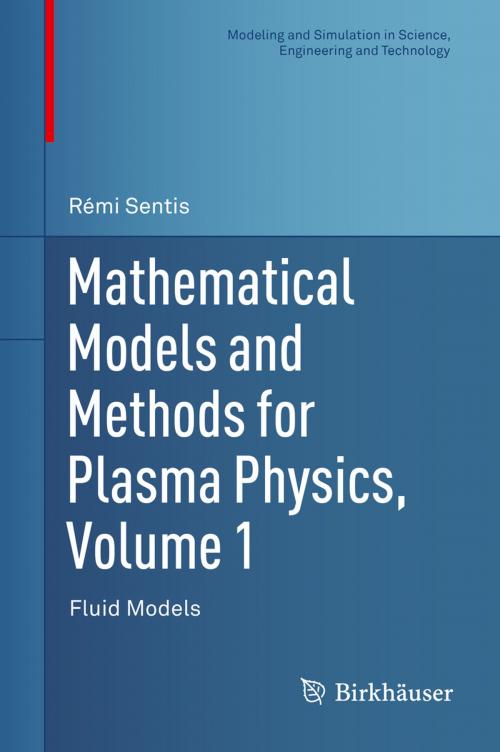Mathematical Models and Methods for Plasma Physics, Volume 1
Fluid Models
Nonfiction, Science & Nature, Science, Physics, Nuclear Physics, Mathematics, Applied| Author: | Rémi Sentis | ISBN: | 9783319038049 |
| Publisher: | Springer International Publishing | Publication: | January 31, 2014 |
| Imprint: | Birkhäuser | Language: | English |
| Author: | Rémi Sentis |
| ISBN: | 9783319038049 |
| Publisher: | Springer International Publishing |
| Publication: | January 31, 2014 |
| Imprint: | Birkhäuser |
| Language: | English |
This monograph is dedicated to the derivation and analysis of fluid models occurring in plasma physics. It focuses on models involving quasi-neutrality approximation, problems related to laser propagation in a plasma, and coupling plasma waves and electromagnetic waves. Applied mathematicians will find a stimulating introduction to the world of plasma physics and a few open problems that are mathematically rich. Physicists who may be overwhelmed by the abundance of models and uncertain of their underlying assumptions will find basic mathematical properties of the related systems of partial differential equations. A planned second volume will be devoted to kinetic models.
First and foremost, this book mathematically derives certain common fluid models from more general models. Although some of these derivations may be well known to physicists, it is important to highlight the assumptions underlying the derivations and to realize that some seemingly simple approximations turn out to be more complicated than they look. Such approximations are justified using asymptotic analysis wherever possible. Furthermore, efficient simulations of multi-dimensional models require precise statements of the related systems of partial differential equations along with appropriate boundary conditions. Some mathematical properties of these systems are presented which offer hints to those using numerical methods, although numerics is not the primary focus of the book.
This monograph is dedicated to the derivation and analysis of fluid models occurring in plasma physics. It focuses on models involving quasi-neutrality approximation, problems related to laser propagation in a plasma, and coupling plasma waves and electromagnetic waves. Applied mathematicians will find a stimulating introduction to the world of plasma physics and a few open problems that are mathematically rich. Physicists who may be overwhelmed by the abundance of models and uncertain of their underlying assumptions will find basic mathematical properties of the related systems of partial differential equations. A planned second volume will be devoted to kinetic models.
First and foremost, this book mathematically derives certain common fluid models from more general models. Although some of these derivations may be well known to physicists, it is important to highlight the assumptions underlying the derivations and to realize that some seemingly simple approximations turn out to be more complicated than they look. Such approximations are justified using asymptotic analysis wherever possible. Furthermore, efficient simulations of multi-dimensional models require precise statements of the related systems of partial differential equations along with appropriate boundary conditions. Some mathematical properties of these systems are presented which offer hints to those using numerical methods, although numerics is not the primary focus of the book.















